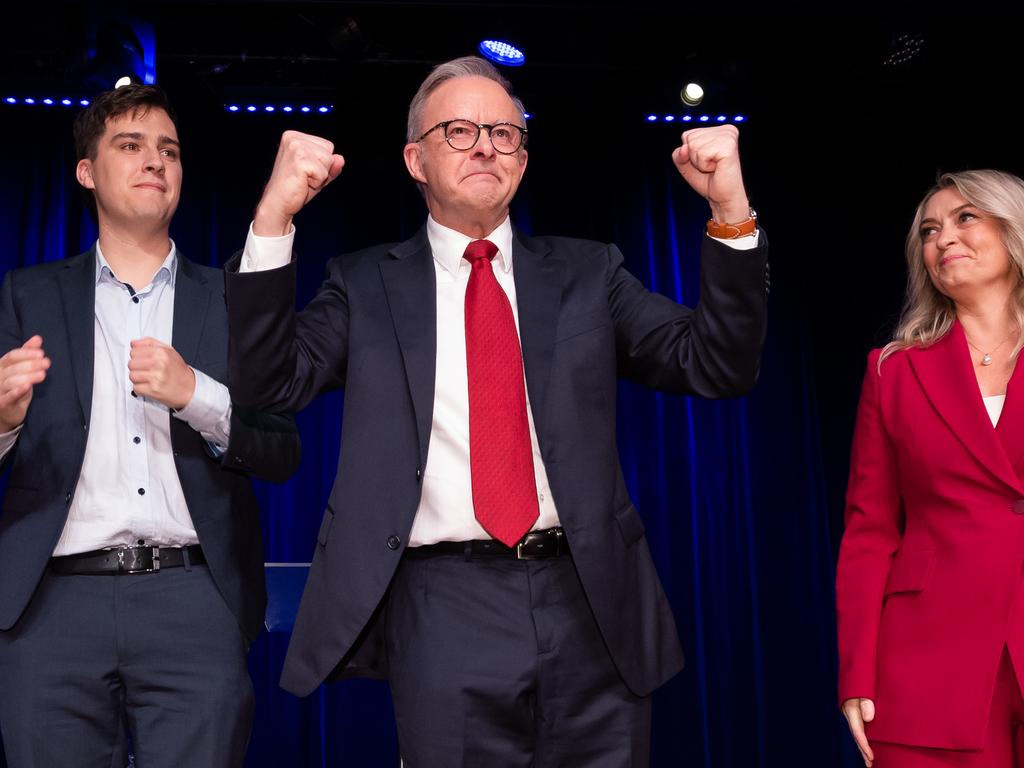Women problem ‘could kill off the Liberals’, says Linda Reynolds
The number of Liberal women in parliament has fallen to the lowest number in more than 30 years, with a review finding the party is facing extinction because of its women problem.

The Liberal Party is facing extinction because of its women problem, says the author of the Coalition’s federal election gender review, as damning analysis reveals the number of Liberal women in parliament is at its lowest in more than 30 years.
As the party’s first female leader Sussan Ley said she would back any state division implementing quotas, the review into the federal election result shows just six of the party’s 28 lower-house MPs were women, representing fewer than 22 per cent of its members.
This compared with levels in 2013 when Tony Abbott led the Coalition back to power, when female representation in the house was still around 20 per cent, but with 18 women occupying the 90 seats held by the party.
In fact the report notes that “in absolute numbers, there are now fewer Liberal women than in the 47th parliament, the lowest number since 1993”.
“In the 2025 federal election, voters have again sent a clear message … a message of electoral irrelevancy which the party received, but failed to act upon, after the 2022 election,” states the review, authored by outgoing Liberal senator Linda Reynolds.
“These 2025 election results provide a clear and repetitious gender picture for the Liberal Party, both in terms of parliamentary representation and declining support from female voters.”
While noting Australia had moved from 35th to 12th in the world for female representation in parliament, the report states “this rise is due to the combined increases in women elected from the non-Coalition parties”.
Compared with Labor’s preselection, in which women made up 56 per cent of candidates, just 32 per cent of the Liberal Party’s candidates were women.
Writing in The Australian, Senator Reynolds said the party was facing an existential threat that needed to be urgently confronted.
“Last year, the Liberal Party celebrated its 80th anniversary. The chances of us marking a 90th anniversary are slim if party divisions do not embrace the gender values the Liberal Party was founded on,” Senator Reynolds writes.
“Australian voters have been repeatedly telling the party that it is rapidly becoming electorally irrelevant.

“Liberal Party members must find a way to rapidly move beyond the pathological aversion to even discussing gender imbalance, never mind addressing it.”
Senator Reynolds called for quotas to be considered and blasted the criticism that such a measure did not adequately prioritise “merit”.
“I dislike the word merit used in this context,” she said.
“Not because I disagree with the concept, but because the Liberal Party does not have clear, transparent merit-based criteria and it is only ever used in relation to selecting women.
“Quotas in some form must be considered and adopted if we are to realise genuine gender reform before it is too late.”
Senator Reynolds’ comments follow Ms Ley using her first National Press Club address as Opposition Leader on Wednesday to declare she would be a “zealot” in working to increase the number of female Liberal MPs, confirming she would support the implementation of quotas by state Liberal Party divisions.
“I’m agnostic on specific methods to make it happen, but I am a zealot that it does actually happen,” the Opposition Leader said in her address.
“Current approaches have clearly not worked, so I am open to any approach that will.
“The Liberal Party operates as a federated model, meaning each state division determines its own preselection rules.”
But Angus Taylor – Ms Ley’s rival for the leadership during the ballot held in the wake of the election defeat and previous leader Peter Dutton losing this seat in parliament – expressed strong opposition to the idea on Thursday.
“I absolutely support making sure that we attract the very best people and retain the very best people in the Liberal Party … and that, of course, means making sure we’ve got a representative number of women amongst those people,” he told reporters in Canberra.
“I’ve never been a supporter of quotas as a means to do that. I think there are better ways of doing that.”
Mr Taylor would not name the “better ways” of doing so, declaring instead: “What we need to see happening inside the Liberal Party is making sure that we are obsessed with attracting, retaining and mentoring great talent.
“I’ve always done it through my political career. I did it through my professional career, and I’m going to continue to do it,” he said.
Senator Reynolds, who officially leaves parliament at the expiry of her six-year term on July 1, said: “The survival of the party is … on the line. The hard truth that many Liberal Party members are reluctant to accept is that no matter how large or successful it may have been, the future of any political party is never guaranteed.”








To join the conversation, please log in. Don't have an account? Register
Join the conversation, you are commenting as Logout